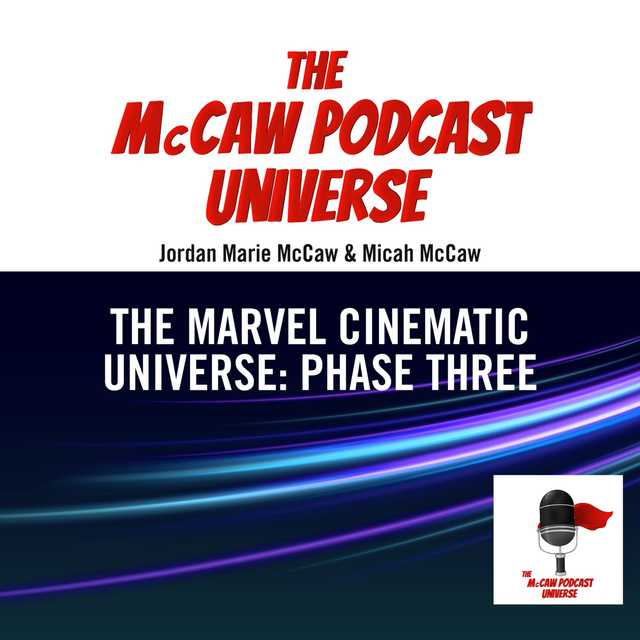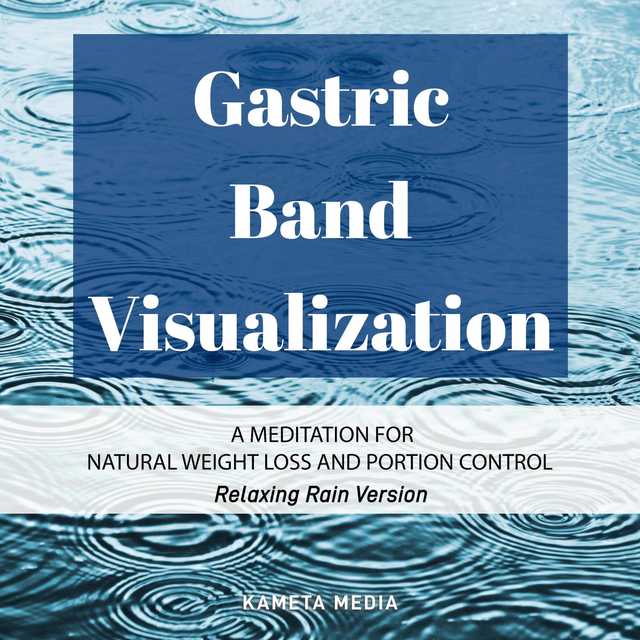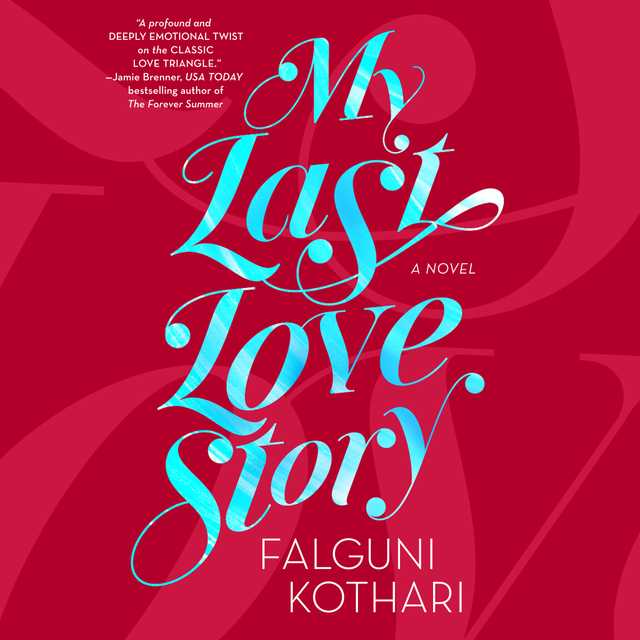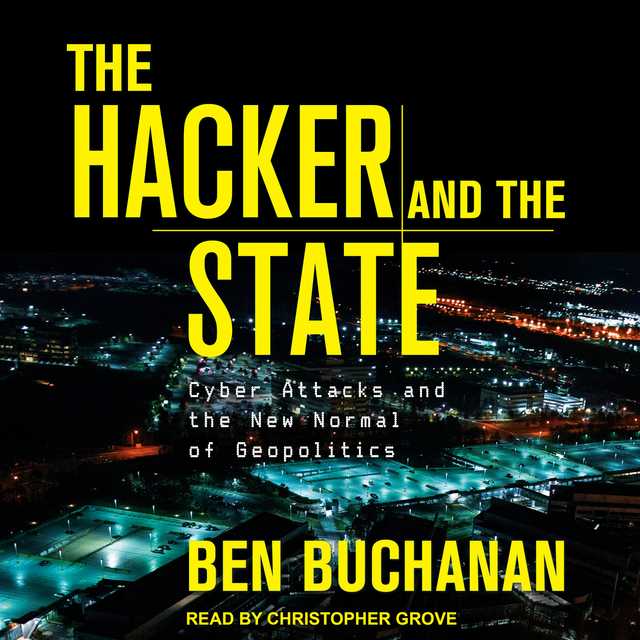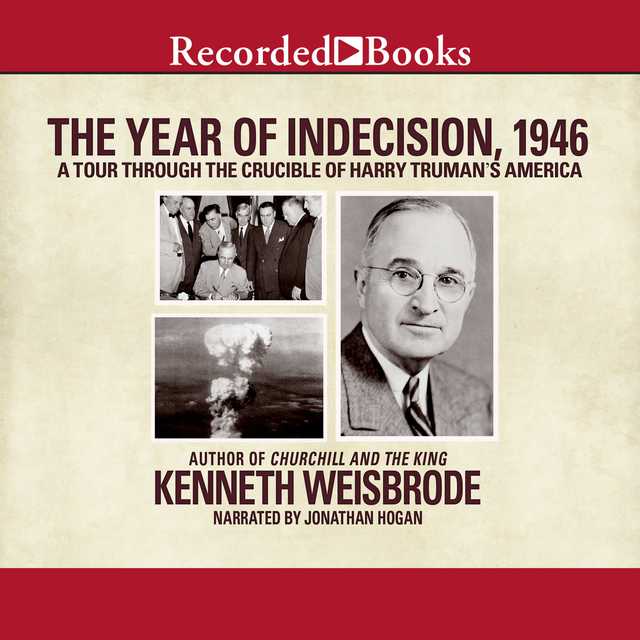Oracle Night Audiobook Summary
Several months into his recovery from a near-fatal illness, thirty-four-year-old novelist Sidney Orr enters a stationery shop in the Cobble Hill section of Brooklyn and buys a blue notebook. It is September 18, 1982, and for the next nine days Orr will live under the spell of this blank book, trapped inside a world of eerie premonitions and bewildering events that threaten to destroy his marriage and undermine his faith in reality.
Why does his wife suddenly break down in tears in the backseat of a taxi just hours after Sidney begins writing in the notebook? Why does M.R. Chang, the owner of the stationery shop, precipitously shut down his business the next day? What are the connections between a 1938 Warsaw telephone directory and a lost novel in which the hero can predict the future? At what point does animosity explode into violence? To what degree is forgiveness the ultimate expression of love?
Paul Auster’s mesmerizing eleventh novel reads like an old-fashioned ghost story. But there are no ghosts in this book — only flesh-and-blood human beings, wandering through the haunted realms of everyday life. At once a meditation on the nature of time and a journey through the labyrinth of one man’s imagination, Oracle Night is a narrative tour de force that confirms Auster’s reputation as one of the boldest, most original writers at work in America today.
Other Top Audiobooks
Oracle Night Audiobook Narrator
Paul Auster is the narrator of Oracle Night audiobook that was written by Paul Auster
Paul Auster is the bestselling author of Oracle Night, The Book of Illusions, and Timbuktu. I Thought My Father Was God, the NPR National Story Project anthology, which he edited, was also a national bestseller. His work has been translated into thirty languages. He lives in Brooklyn, New York.
About the Author(s) of Oracle Night
Paul Auster is the author of Oracle Night
More From the Same
- Author : Paul Auster
- Burning Boy
- 4 3 2 1
- Invisible
- Sunset Park
- Man in the Dark
- Publisher : HarperAudio
- Abraham
- American Gods [TV Tie-In]
- Dead Ringer
- House of Sand and Fog
- Prey
Oracle Night Full Details
| Narrator | Paul Auster |
| Length | 7 hours 23 minutes |
| Author | Paul Auster |
| Publisher | HarperAudio |
| Release date | July 19, 2005 |
| ISBN | 9780060878252 |
Additional info
The publisher of the Oracle Night is HarperAudio. The imprint is HarperAudio. It is supplied by HarperAudio. The ISBN-13 is 9780060878252.
Global Availability
This book is only available in the United States.
Goodreads Reviews
Ahmad
November 19, 2021
Oracle Night, Paul AusterThe novel is about a writer named Sidney Orr (Orlovsky), who, after making a miraculous recovery from near fatal illness, buys a new notebook and starts writing a story about a man who completely changed his life when he realized how much his existence was ruled by randomness.تاریخ نخستین خوانش: ماه نوامبر سال2003میلادیعنوان: شب پیشگویی؛ نویسنده: پل آستر (اوستر)؛ مترجم: خجسته کیهان؛ تهران، افق، سال1384؛ در271ص؛ فروست ادبیات امروز، رمان23؛ شابک9643691632؛ چاپ دوم سال1386؛ چاپ پنجم سال1392؛ چاپ ششم سال 1397؛ موضوع: داستانهای نویسندگان ایالات متحده آمریکا - سده21مداستان «شب پیشگویی»، روایت زندگی جوان نویسنده ای است، که پس از مدتی دوری از نوشتن؛ با خریدن یک دفترچه ی آبی رنگ، بار دیگر اشتیاق نوشتن را، در خود احساس میکند، و با طرح داستانی در ذهنش، آغاز به نگارش داستان میکند؛ داستان مردی که یک زندگی را ترک میکند، و ناپدید میشود؛ تا در جایی دیگر، زندگی دیگری برای خود بسازد...؛ جوان نویسنده که به تازگی پس از گذراندن یک بیماری دشوار و کشنده، بهبود یافته، در کنار داستانی که آغاز کرده، در کنار داستان زندگی خویش، به روایت داستان همسرش نیز میپردازد؛ و این سبب ایجاد چالشهایی در زندگی مشترک نویسنده با همسرش میشود؛ نویسنده ی جوان برای پرداختن به بخشهای پنهان زندگی مشترکشان، خیالپردازی میکند؛ و داستان را پیش میبرد...؛ نقل از کتاب: (ما عاشق بدنها نمیشویم، بلکه گرفتار عشق یکدیگر میشویم، و اگرچه موجودیت ما در پوست و استخوان محدود است، ولی همه چیز در آن خلاصه نمیشود؛ همه این را میدانیم، با اینحال به محض اینکه از فهرست خصوصیات ظاهری فراتر میرویم، درمیمانیم و واژه ها در سردرگمی و استعاره های مه آلود و بی اساس، مچاله میشوند؛ بعضیها آنرا آتش وجود مینامند؛ برخی شعله ی درونی، یا پرتو درونی وجود، و بعضی دیگر آن را گوهر فروزان درون مینامند؛ این اصطلاحات، همیشه تصاویر نور، گرما، و نیرو را، تداعی میکنند؛ آن جوهر زندگی که گاه روح مینامیم، همواره از طریق چشم با دیگران ارتباط مییابد؛ پافشاری شاعران بر این نکته حتما درست است؛ راز اشتیاق، با نگریستن به چشمان محبوب، آغاز میشود، چون تنها در آنجاست که میتوان، لحظه ای به آنچه که او واقعا هست، پی برد...)؛ پایان نقلتاریخ بهنگام رسانی 20/09/1399هجری خورشیدی؛ 28/08/1400هجری خورشیدی؛ ا. شربیانی
Fabian
September 26, 2020
The story-within-the-story device gives Paul Auster plenty of freedom to orchestrate this postmodern novel. These are the (fake) jottings of an active writer and they include daily occurrences (diarylike), ideas for plots, a coherent free-flow of thoughts and musings, a scrapbook of so much mixed media which describes a vivid world dabbling in the surreal. His avoiding the usage of quotation marks in the story-within-the-story’s dialogue conveys the continuity of the writer’s imagination. He uses literary irony, sometimes his character’s descriptions are so remarkably like those he makes of his acquaintances. Plot-wise there is jumping around, making whole days lapse only one paragraph, creating different story lines and times, using repetition to give the reader a vague sense of déjà vu. Chapterless, it continues in the major tradition of the thriller (continued & realized to its most masterful level in 2006 with Scott Smith’s novel of visceral horror The Ruins) to be easy-to-follow, despite having no rests between climaxes & plot revelations. The “narcissistic novel” brand is befitting of 'Oracle Night.' Let’s not forget Auster's trademark use of footnotes. More than creating an “academic” (i.e. entitled) voice, this tool can pump in more information to an otherwise “short” novel. Footnotes are small pockets of compressed data; additionally they allow the reader to interact with the text itself. He flips the pages prematurely to get the "hidden" back story, breaking the rules of literature by traversing through the main plot itself...This is a book about books through & through.
Elyse
March 10, 2020
Audiobook... read by Paul AusterThis was my 3rd time listening to Auster read one of his books. His voice is distinct, engaging, natural, terrific rhythmic flow... complementing his storytelling prose. I’m late to seriously becoming a fan... but, I’m definitely getting there. Auster really holds my attention - so much so - I promised myself that the next Auster book I choose - I’ll read it rather than listen to him. I have a hard time separating the entertainment value between his voice or the story itself. I like both! We meet Sidney Orr - a novelist... and the narrator. Sidney was recovering from a serious illness. After leaving the hospital he walks into “The Paper Palace”, a stationary store and bought a blue notebook that was made in Portugal. He becomes obsessed it - and he begins to write again after a period of writers block. Interesting odd things start to happen as Sid begins to write.This is a complex story about a book of stories, ( three to be specific), within stories...connecting them to all to Sidney. ( and all the things important in his own life). The mystery, intrigue, and descriptions kept me glued.This is a novel but it times it felt like it was non-fiction. Set in 1982, we follow Sydney‘s life for nine days. His marriage is threatened... coincidences happened... characters are compelling...( especially Grace, his wife)...and we take an introspective look into the future. For me - the greatness was the intimacy of Sidney ‘telling’ the stories. ( leaving hints of the concerns of his own life). That old saying, “I could listen to this guy read the phone book”, applies accurately for me with Paul Auster.
Ian
September 22, 2021
CRITIQUE:Back to BackThis novel made a good back-to-back read with Paul Auster's "The Book of Illusions". You can normally rely on Auster to combine an interest in metafiction with an aptitude for strong story-telling, particularly in the private detective style.Like "The Book of Illusions", "Oracle Night" embraces multiple dimensions of narrative. However, its story-telling is inferior, in comparison. In this case, Auster's preoccupation with the metafictional structure of the novel diminishes and almost conceals what little story there is - perhaps, because different aspects of the story are contained in different components of the metafiction. For some reason, the segments of the story remain disconnected and segmented, rather than becoming connected and integrated. The narrative never quite adds up to an alluring story. The story remains incoherent."The Book of Illusions" was tightly structured around its numbered chapters. Here, there are no chapters, just occasional breaks in the text, where Auster transitions from one segment of metafiction to another. Because each of these segments contains a different aspect of the overall story, the reader makes a transition as well. The boundary between two segments is like a magic door or portal through which the reader progresses (or regresses) into the next segment.Nine Days in September, 1982Auster (or the implied author of the text) frequently specifies the date of the year (or the day of the week) and the time of day. Unless you start paying attention to this practice, you mightn't realise that the novel deals primarily with a discrete period of time (nine days), although this is probably implicit in any work of fiction. Once again, the perspective is from twenty years into the future. Or these events supposedly occurred twenty years into the past.The further the novel progresses, though, the more Auster refers to the day of the week, rather than the date of the year. Thus, he gives us less information about the overall timeframe.It's almost as if Auster's goal was to see how much he could dismantle the narrative, and still permit a reader to detect and appreciate the overall story."There's a Novel in This Somewhere"This is probably the most disparate and puzzling of Auster's metafictional projects that I've read to date. It's possible that there are just too many parts that fail to add up to a satisfying sum.Firstly, and most obviously, there is the novel that Auster himself has written, ostensibly called "Oracle Night".The immediate focus of Auster's novel is the writer, Sidney Orr, and his wife, Grace, a graphic designer, and their relationship with another writer, friend and father figure, John Trause (an anagram for Auster). Sid is recovering from a fall, which might or might not symbolise his sense of inadequacy about his relationship with Grace. It's never clear whether Trause's purpose is to cement or destabilise the relationship between Sid and Grace. Sid imagines that Trause is having an affair with Grace, despite the age difference between them. The relationship between the three drifts between affection and antagonism. Still, Trause offers to "lend" one of his unpublished works ("The Empire of Bones") to Sid, so that he can use it to write a screenplay for a fee that he needs to repay his medical debts.In order to start his new project, Sid purchases a blue notebook made in Portugal at a stationery store called "Paper Palace". The owner is a Chinese man, M. R. Chang, whom Sid encounters in various contexts that test his commitment to his writing project, his fidelity to Grace and his ability to defend himself physically. Sid suffers from a troubled or guilty conscience about his frailty and vulnerability to temptation, even if it occurs solely in his imagination."The Plot Was Too Cerebral"(1)At the suggestion of his agent, Sid also writes a treatment for a film based on H.G. Wells' novel,"The Time Machine". Sid regards his work as "a piece of shit...pure rubbish...fantasy drek of the lowest order, but it felt like a possible movie to me." Unfortunately, for him, the treatment is rejected, because "the plot was too cerebral," an assessment that could equally apply to much of Auster's work.On the other hand, Trause prompts Sid to write a novel based on the Flitcraft parable (2) told in Dashiell Hammett's "The Maltese Falcon". Hammett inferred from this story that "men died at haphazard, and lived only while blind chance spared them." Trause suggests, "There's a novel in this somewhere...It's a terrific premise. All you need is a story to go with it." "All You Need is a Story to Go with It"Sid's novel aims to supply the story. It's about a couple called Nick and Eva Bowen, whose relationship mirrors that of Sid and Grace. In this novel within a novel, Nick (a literary agent) receives and reads the manuscript for a novel called "Oracle Night" (a novel within a novel within a novel), which was written by the fictional Sylvia Maxwell, a supposedly popular writer in the twenties and thirties. The protagonist is Lemuel Flagg, a British lieutenant blinded by a mortar explosion in the trenches of World War I. Like Sid, he is nursed back to health, until he falls in love with a woman and proposes marriage to her. He predicts that the marriage is doomed, and eventually commits suicide.This is just one of several stories that approaches soap opera in form and content.While walking along the street, Nick narrowly avoids being struck on the head by a falling gargoyle, which replicates part of the Flitcraft parable/episode. Soon after, Nick travels to Kansas City for a break from Eva, where he encounters a cab driver called Ed Victory (Johnson), who accidentally locks him in an underground bunker he uses to store old phone books (one of which, from Warsaw, contains entries for Sid's Polish family name, Orlovsky). This sub-story seems to be overlooked, because at the end of the main novel, Nick is still locked in the bunker awaiting his death. Sid hasn't resolved how to end the story convincingly.Haphazard ConstructionNevertheless, Auster places all of these ingredients in a literary bowl and stirs them until something tenable emerges, as if by chance: "The world is governed by chance. Randomness stalks us every day of our lives, and those lives can be taken from us at any moment - for no reason at all." I'm tempted to agree with Trause that "there's a novel in this somewhere," even if it seems to be largely haphazard, and it's not readily identifiable on the pages of the book.FOOTNOTES:(1) Some of the many footnotes were spread over four pages, and could equally have been included in the body of the text. I've never really understood the appeal of this post-modernist affectation.(2) The Flitcraft parable:http://unfutz.blogspot.com/2006/11/30...http://fallingbeam.org/beam.htmhttps://www.youtube.com/watch?v=VJ66a...https://tacomahistory.live/2016/08/08...https://tacomahistory.live/2016/02/18...Maureen's Review of "The Maltese Falcon"My review of "The Maltese Falconhttps://www.youtube.com/watch?v=hKcZa...SOUNDTRACK:(view spoiler)[Stefan Schultze Large Ensemble - "Oracle Night"https://www.youtube.com/watch?v=y5zPF...The Mutton Birds - "While You Sleep"https://youtu.be/cHoglJTHCao (hide spoiler)]
Gabriela
December 04, 2022
O carte-magnet, de care nu m-am putut desprinde, așa că am citit-o în câteva ore și n-aș fi vrut să se termine.M-a trimis înapoi la studiul lingvisticii și teoriilor comunicării, la structuralism și fantasticul lui Tzvetan Todorov și la actele de vorbire ale lui Austin, la celebra formulă "how to do things with words". Pentru că despre asta e vorba, despre puterea cuvintelor de a crea lumi, despre imaginația noastră pusă în vorbe care au forța de a crea viitorul. La propriu.Și am regăsit tehnicile pe care le iubesc la Auster: naratorul este un scriitor care scrie o carte despre un alt personaj din lumea editoriala care scrie/descoperă/publică o carte; identitatea în (re)construcție; New Yorkul magic (e chiar supranatural sau sunt doar niște coincidențe stranii? - noi trebuie să decidem); personajele extrem de bine construite, de vii; scenele de sex atât de naturale, ne-gratuite; fluiditatea frazelor; climaxul excelent gradat; finalul satisfăcător (nu neapărat fericit, dar care rotunjește textul).
Mihaela
June 21, 2022
4.5 * E atat de curgatoare povestea, imbinata perfect cu toate celelalte povesti tip carte in carte, incat am citit-o pe nerasuflate. Inca un roman marca Auster, care m-a delectat, despre neprevazutul ascuns in cotidian si despre compromisuri ce devin bombe cu ceas, cand te astepti mai putin. Despre fantastica putere a cuvintelor de a schimba vieti, de a crea pe viu dramele ce initial erau doar in minte si apoi pe hartie.Am mai spus ca Paul Auster e magician neintrecut si nu se dezminte nici acum.
Sali-steady-read
September 09, 2021
Shall I change the stars I've given this book about 10 years ago because I enjoyed it even more this time? Is it the story or me that has changed?? The changes I've been through these past 10 years must be enormous as I totally connected with the book in a totally different way this time. I love the way Auster puts things, and I even love more how the things unfold gradually throughout the story. No doubt he is one of the greatest authors I have read. I will try reading this magical novel when I'm turning 40 to see how it goes then.
Blair
February 25, 2017
'If you have never read Auster before,' proclaims a quote displayed on the cover of this edition of Oracle Night, 'this is the place to start.' I hadn't read Auster before beginning this book, but I'd been meaning to for a while - especially since I've now read three of his wife (Siri Hustvedt)'s books and have gathered that their work ie very similar in style and theme. I wasn't out looking for an Auster book, I was just browsing at the library, but when I spotted it, the intriguing summary and that quote were good enough for me. Oracle Night is short, but packed with detail. It's a multi-layered story, beginning with Sidney Orr - a novelist who is recovering from a severe illness - buying a unique Portuguese notebook in a rather odd stationery store. On the recommendation of his friend, also a novelist, Sidney begins to flesh out an idea for a story concerning a man who suffers a near-death experience and impulsively leaves his wife and home, resolving to start his life anew in a different city. The narrative follows both the progression of this tale and its protagonist Nick Bowen, and the 'real' story of Sidney, whose relationship with his wife Grace (the history of which is detailed in a number of footnotes) begins to flounder soon after he acquires the notebook. Meanwhile, Sidney attempts to re-write HG Wells' The Time Machine as a modern film script, turning it into an unconventional romance, and the Nick narrative also has a further strand wherein the character is profoundly affected by the contents of a lost manuscript, the title of which is Oracle Night. Like I said, multi-layered. There are definitely elements of the weird about this story - the disappearance and relocation of the Paper Palace and its enigmatic proprietor, the 'powers' of the notebook - but it isn't a paranormal or fantasy novel. This really appealed to me - I love the combination of literary prose and hints of the unexplained. I also LOVED the writing. It is very like Hustvedt's, though it's also quite easy to tell the difference. Despite all the intricacies of the plot, it often seems secondary to the way the story is told, the ideas it explores. There are parallels galore and the book often touches on the relationship between fiction and reality and/or language and action. I'd have liked this book to be longer (and it easily could have been), but overall it was a fantastic read which piqued my interest in Auster enough for me to go straight on to another of his books - The New York Trilogy - after finishing it.
Franky
July 12, 2020
I read one of Paul Auster’s works, The New York Trilogy, a few years back, enjoyed it immensely, and it was good to get back to reading him again. I think what Auster manages to do in both of the works I’ve read is create a sense of layers of meaning in both the real world and the literary world (the one being written on paper). Both in The Trilogy and Oracle Night, there’s a sense of metacognition or thinking about thinking, or thinking and reflection on the world. Events, people, conflict play out and have many layers to them. In short, he is an author that makes you think and that is what I’ve loved about reading his books so far. I will have to do the calculations, but I think Auster’s book might at some points cross over into a “story within a story within a story.” We have Paul Auster writing about his protagonist Sidney Orr, a writer who is working on a manuscript about a man named Nick Bowen who, in this book, is focused on reading the writings of Sylvia Maxwell, an author who has written Oracle Night. Auster manages to intertwine all of these elements and blend them into one engaging plot, and, at points, the plot of the writings bleed into the real life aspects of the story. It’s really hard to go into particulars about plot with a Paul Auster novel, because sometimes I think that the story or meaning under the surface is far more impressionable and meaningful that the surface level plot. However, to give some context, Oracle Night’s premise involves novelist Sydney Orr having recently been released from the hospital after overcoming a near fatal illness, and his transition back into life with his wife and his friend, an author named John. There’s an interesting scene where Orr visits a stationary shop and buys a blue notebook and this sort of becomes his inspiration to begin to draft a story. There are many parallels to the story he is devising and his real life, and certain things seem to take on a life of their own. Within Auster’s work, there are certain elements that the author investigates, one of which is the element of how future events work. In many ways, Oracle Night is a mediation on life and its struggles, and how quite often the literary and literal world aren’t as far apart as we imagine.There are many layers to this novel, and this is a book that will have you reflecting after you read the final page, which I think is the hallmark of an engaging and thoughtful book.
Most Popular Audiobooks
Frequently asked questions
Listening to audiobooks not only easy, it is also very convenient. You can listen to audiobooks on almost every device. From your laptop to your smart phone or even a smart speaker like Apple HomePod or even Alexa. Here’s how you can get started listening to audiobooks.
- 1. Download your favorite audiobook app such as Speechify.
- 2. Sign up for an account.
- 3. Browse the library for the best audiobooks and select the first one for free
- 4. Download the audiobook file to your device
- 5. Open the Speechify audiobook app and select the audiobook you want to listen to.
- 6. Adjust the playback speed and other settings to your preference.
- 7. Press play and enjoy!
While you can listen to the bestsellers on almost any device, and preferences may vary, generally smart phones are offer the most convenience factor. You could be working out, grocery shopping, or even watching your dog in the dog park on a Saturday morning.
However, most audiobook apps work across multiple devices so you can pick up that riveting new Stephen King book you started at the dog park, back on your laptop when you get back home.
Speechify is one of the best apps for audiobooks. The pricing structure is the most competitive in the market and the app is easy to use. It features the best sellers and award winning authors. Listen to your favorite books or discover new ones and listen to real voice actors read to you. Getting started is easy, the first book is free.
Research showcasing the brain health benefits of reading on a regular basis is wide-ranging and undeniable. However, research comparing the benefits of reading vs listening is much more sparse. According to professor of psychology and author Dr. Kristen Willeumier, though, there is good reason to believe that the reading experience provided by audiobooks offers many of the same brain benefits as reading a physical book.
Audiobooks are recordings of books that are read aloud by a professional voice actor. The recordings are typically available for purchase and download in digital formats such as MP3, WMA, or AAC. They can also be streamed from online services like Speechify, Audible, AppleBooks, or Spotify.
You simply download the app onto your smart phone, create your account, and in Speechify, you can choose your first book, from our vast library of best-sellers and classics, to read for free.
Audiobooks, like real books can add up over time. Here’s where you can listen to audiobooks for free. Speechify let’s you read your first best seller for free. Apart from that, we have a vast selection of free audiobooks that you can enjoy. Get the same rich experience no matter if the book was free or not.
It depends. Yes, there are free audiobooks and paid audiobooks. Speechify offers a blend of both!
It varies. The easiest way depends on a few things. The app and service you use, which device, and platform. Speechify is the easiest way to listen to audiobooks. Downloading the app is quick. It is not a large app and does not eat up space on your iPhone or Android device.
Listening to audiobooks on your smart phone, with Speechify, is the easiest way to listen to audiobooks.











